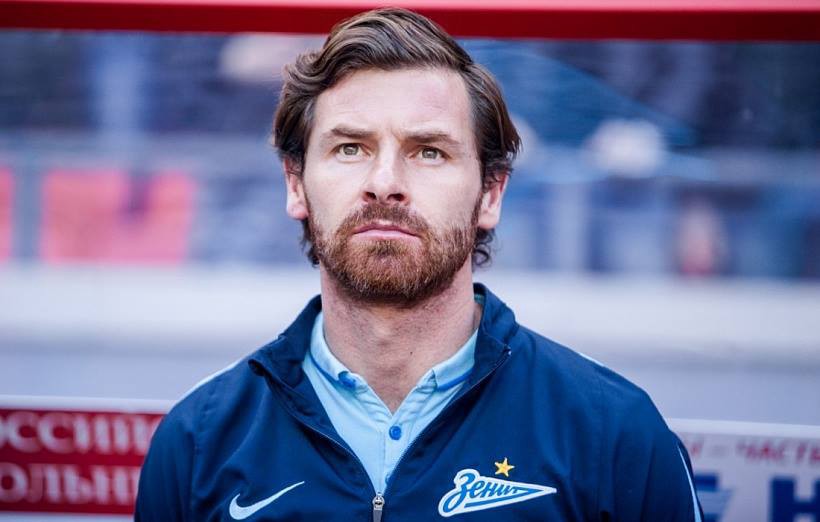Boy genius at 33. Washed up at 39. Will we ever know the real AVB?

The first thing one notices about André Villas-Boas is his squatting posture. That is intentional. A man doesn’t adopt a posture with his quadriceps parallel to the ground in an attempt to avoid attention. Once one sees the routine, it cannot be unseen. It therefore matters little that Villas-Boas no longer seems to crouch on the sidelines. That’s who he is and always will be: a fixed point in the memory of soccer fans.
That point is at once in the distant past and relatively recent, because that’s how soccer works. The Portuguese wunderkind arrived at Chelsea in 2011 and left England—and Tottenham—in 2013. In a sense, he succeeded. This was a time when iconoclastic managers were in demand and short supply. He played the part well—all stubble, frantic gestures, and exaggerated poses. Anything to signify that the gears were turning in his head. The squatting was a literalist’s expression of “seeing the game from a different perspective.” Some managers do that just by thinking, but Villas-Boas needed you to see him put in the work. One got the sense that, if he could, Villas-Boas would monitor the game using a drone. Isn’t that what his paymasters wanted, why they hired him? The question with Villas-Boas was always whether his managerial skills could ever match his personal branding. He departed for Russia—and the periphery of football’s consciousness—before that question could be answered.
Andre Villas Boas is set to earn an astronomical amount of money to replace Sven Goran Eriksson in China https://t.co/mh384XIM3O pic.twitter.com/dnWLBUEKgj
— Irish Independent Sport (@IndoSport) November 5, 2016
And now André Villas-Boas is in China—the new manager of Shanghai SIPG, to be precise—which is a fancy way of saying that we’ll probably never know if he’s more than an advertising agency’s idea of a modern manager. That, I will concede, is not one of life’s greater tragedies. André Villas-Boas is still being paid princely sums to do a job that he likes. For good measure, he’s getting to tour the world as he circles the managerial drain. Don’t worry; André Villas-Boas will be fine.
At the same time, it’s hard not to wonder what the Portuguese’s career might have been. Even in his least impressive moments, Villas-Boas was roughly what his employers expected of him. Hired to be an attacking ideologue during one of Roman Abramovich’s trial break-ups from Jose Mourinho, he was just that; the team didn’t work, but it didn’t work in exactly the ways it was supposed to not work. The aging players he was brought in to phase out led a mutiny that got him predictably fired in eight months. Roberto Di Matteo promptly led the team to Champions League victory. He moved on to Tottenham, which was looking for a cosmopolitan manager with European pretensions who was willing to come to a club more likely to play its continental fixtures on Thursday. Theirs was a decent marriage of convenience—a good fit between talented entities with a habit of falling just short—then Tottenham sold Gareth Bale. [Sidenote: Remember Tim Sherwood? As with Di Matteo, Villas-Boas was once again replaced with a bad manager who, at first, burned bright.] Then came some reasonably successful years in Russia, but Russia occupies a place in the memory of football fans roughly adjacent to the face of an eighth cousin: you can place it but that’s about it.
What do we really know about André Villas-Boas at this point? We know that he didn’t quite make the cut at Chelsea or Tottenham, but that isn’t hugely telling. He was reasonably inflexible and worked best with certain players, but that’s hardly rare in terms of managers. How many times has Harry Redknapp tried to sign Niko Kranjcar? These points are neither defenses nor compliments for the man; he never found his level so superlatives are not needed.
Instead, André Villas-Boas chose to travel the rich soccer world. It is, on the one hand, an admirable decision: instead of being another managerial retread, he can now see the hemisphere’s oligarchical sights. Good for him. The periphery of the managerial world, however, is not a place one frequently comes back from. We had our chance to understand André Villas-Boas and we squandered it. He will remain an idea of the modern manager—FIFA in corporeal form—as opposed to one in practice. That, in a small way, is a loss for soccer fans.

